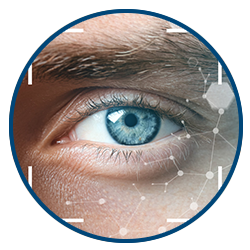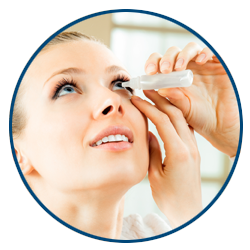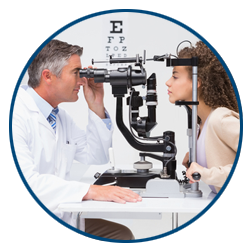 Eye exams are more than just checking how well you can see—they are vital to maintaining your overall health for adults and children. Regular eye exams with our highly-qualified Owings Mills optometrists can catch early signs of eye disease, helping preserve your vision and overall well-being.
Eye exams are more than just checking how well you can see—they are vital to maintaining your overall health for adults and children. Regular eye exams with our highly-qualified Owings Mills optometrists can catch early signs of eye disease, helping preserve your vision and overall well-being.
The Critical Role of Early Disease Detection
One of the most important reasons to keep up with regular eye exams is the early detection of eye diseases. Conditions such as glaucoma, macular degeneration, and diabetic retinopathy often have no symptoms in their early stages. Ensuring regular eye exams can diagnose and treat these conditions early is crucial for preventing irreversible vision loss.
Glaucoma
Glaucoma, known as the "silent thief of sight," can progress unnoticed until significant vision is lost. Detected early through routine pressure measurements and optic nerve checks, treatment options like prescription eye drops, oral medications, or surgery can effectively manage the condition.
Macular Degeneration
Early diagnosis through exams helps monitor and manage macular degeneration's progression with treatments like vitamin supplements, laser therapy, or medications that help maintain vision and slow disease progression.
Diabetic Retinopathy
Regular eye exams are crucial for people with diabetes, as they can help detect diabetic retinopathy early. Managing this condition can involve controlling blood sugar levels, laser treatments, and injections to reduce swelling in the retina.
Keep Your Vision Clear with Accurate Prescriptions
Eye exams also play a critical role in ensuring your prescription for glasses and contact lenses is current. Vision changes frequently; outdated prescriptions can cause headaches, eye strain, and blurred vision. Regular check-ups help adapt your prescription as needed, enhancing daily comfort and productivity.
Children's vision is closely linked to their learning processes and academic performance. Although children may not always be aware of vision problems, regular exams ensure their vision is clear as they develop and grow. This prevents learning difficulties that arise from poor eyesight.
The Broader Health Perspective
Interestingly, eye exams can also detect signs of other health issues such as hypertension, high cholesterol, and even cancers. The eye is the only place in the body where doctors can have an unobstructed view of your blood vessels, nerves, and connecting tissue without surgery.
Encouraging Regular Eye Exams
Given the benefits, both health and educational organizations advocate for regular eye exams. Adults should have their eyes tested at least once per year, while children should have vision screening at birth, by six months of age, and at three years old, followed by regular screenings at the beginning of each school year. More frequent exams may be necessary if you're experiencing any vision problems or a history of eye conditions in your family.
Regular eye exams are a proactive measure that supports your vision and overall quality of life. They are an investment in your health and future, ensuring you maintain the best possible vision.







